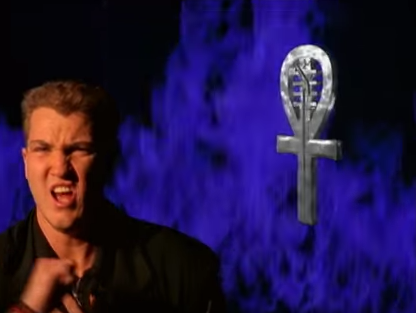There are a wealth of available tracks to listen to after a breakup. From “It’s All Coming Back to Me Now” to “Nothing Compares 2 U,” there’s no shortage of auditory condolences for your loss. But one of the few “I’ve come out of the other side of this much stronger and better than you” songs offered to the recently jilted and/or forced to let go of a loved one because he or she can’t endure his or her shit anymore is Ace of Base’s 1993 single, “The Sign.”
Perhaps because of its anomalously uplifting lyrical content, highlighting all the benefits of shedding one’s ex like a snake’s skin, “The Sign” was embraced by Americans as few other Swedish-made products have been. Blame it on the naïveté of the 90s–the sheer predilection for cheesiness at this time–but, for whatever reason, listeners of “The Sign” seemed blissfully unaware of the reality that absolutely zero of the sentiments expressed have ever applied to any dismantling of a relationship.
Starting with “I, I got a new life, you would hardly recognize me, I’m so glad/How can a person like me care for you?/I, why do I bother, when you’re not the one for me?,” it’s immediately evident that Linn Berggren has never been through a real breakup as what one actually thinks after it’s over is, “Oh God…Holy shit. What have I done? I’m going to die alone. My ex is going to triumph in life by finding someone else before me and/or having a more robust bank account.”
Linn continues with her pack of lies by insisting, “I saw the sign and it opened up my mind/And I am happy now living without you/I left you oh oh oh.” First of all, Linny baby, the music video (at least one of the many versions filmed) depicts a scene of a man leaving his girlfriend first and then she decides not to take him back when he offers her a rose (as if that’s an adequate apology for calling into question her self-esteem). But let’s be real, she probably only did that because she just didn’t want to risk being the one rejected again. It was a defense mechanism, her decision to leave.
Elsewhere Linn indicates a sort of dissatisfaction with her “partner” by referencing the idea that she’s always the one who has to buttress him–the sole reason he’s even still afloat–as she sings, “No one’s gonna drag you up to get into the light where you belong/But where do you belong?” Apparently, not with Linn. Thus, it doesn’t seem like she wanted to leave her boyfriend, so much as, well, he sounds kind of like a deadbeat from this tidbit of information, and she needed to find someone who could at least afford to pay her passage to America.
The real clincher of the entire fallacy of “The Sign,” however, is this: who takes an ankh as a “sign” to ditch your significant other anyway, huh? There’s a reason no one listens to Egyptians anymore. It’s why the phrase “like reading hieroglyphics” exists (and if it doesn’t, it should). Then again, having to endure the searing emotional pain of a breakup is almost equally as unpleasurable as attempting to decipher an ancient language.




















